Selection of our Projects
We have compiled a selection of projects from our subject areas of reactor safety, decommissioning and dismantling, storage, disposal, safety, radiation protection and environment and energy, so that you can get an idea of what our work as a research and expert organisation looks like in concrete terms.
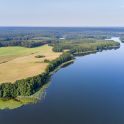
In Western Europe, heat and drought have had a firm grip on us for months now: we keep reading about forest fires, dried-up rivers and even problems with the supply of drinking water – phenomena that are likely to be exacerbated by climate change in the future and will not even stop at water-rich countries like Germany. Last week, for example, the Berlin Senate called on citizens to save water because of increasing drought. In the joint project go-CAM, a tool was developed with participation of a GRS research team that enables decision-makers in authorities and companies to define criteria for sustainable drinking water management.
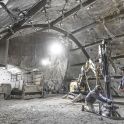
It is unquestionable that a repository for high-level radioactive waste must be safe. This applies both to the phase during which the repository is being constructed and operated and to the phase afterwards, when the waste is enclosed and all drifts and shafts are sealed. In a joint research project, scientists from GRS and BGE Technology GmbH have investigated how these two phases are interrelated and influence each other.
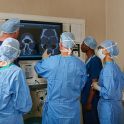
The use of X-rays in medicine is one of the most frequently used methods of diagnostic imaging. X-rays, however, are also increasingly used for so-called interventional procedures. Treatments such as, for example, the dilation of narrowed blood vessels are performed minimally invasively with the aid of fluoroscopy and image recording, i.e. without open surgery. This still relatively new field of medicine is called “interventional radiology”. In cardiology, the use of these image-guided interventions has more than doubled in the last 20 years, among other things due to the high success rate.

In a joint project, researchers from various German institutions have taken a close look at the passive safety systems of nuclear power plants. The results have now been published in the report EASY Integral experimental and analytical investigations regarding the controllability of design basis accidents with passive systems. In addition to GRS, the following institutions were involved: the RWTH Aachen University, the Technische Universität Dresden, the Deggendorf Institute of Technology and FRAMATOME GmbH.
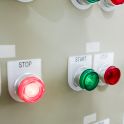
When a nuclear power plant is finally shut down and no electricity is fed into the supply grid any longer, the so-called post-operational phase begins. This can take several years and ends when the licence holder receives from the competent supervisory authority a licence for the decommissioning and dismantling of the nuclear power plant. During the post-operational phase, the licence holder, in coordination with the competent supervisory authority, can already make preparations for the dismantling of the plant. Currently, there are three plants in post-operation in Germany.
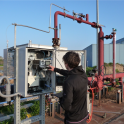
The share of renewable energies in the German energy mix is rising steadily. Deep geothermal energy is also already contributing to more climate-friendly energy. GRS researchers, together with Energie Baden-Württemberg AG (EnBW) and the Geosciences Centre of the University of Göttingen (GZG), have developed and successfully tested new methods and techniques in the BMWi-sponsored ANEMONA project to improve the economic efficiency of geothermal power plants.

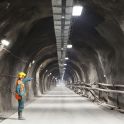
In this project GRS is studying the movement of water and gas - and the radioactive materials contained therein - in repositories. The aim of the study was to refine the calculation tools for the safety assessment of repositories.
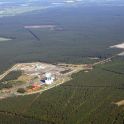
From 2011 to 2013, GRS - together with eight other project partners - was involved in the research project "Preliminary Safety Assessment of the Gorleben Site" (VSG), dealing with various questions concerning the Gorleben site and fundamental methodological issues of disposal. The project was funded by the Federal Environment Ministry (BMU).

The aim of the integrated Geo-Dat project was to set up a thermodynamic database for the modelling of complex geochemical processes in deep geothermal layers of the North German Basin. Results from the integrated project are incorporated into the thermodynamic reference database THEREDA.